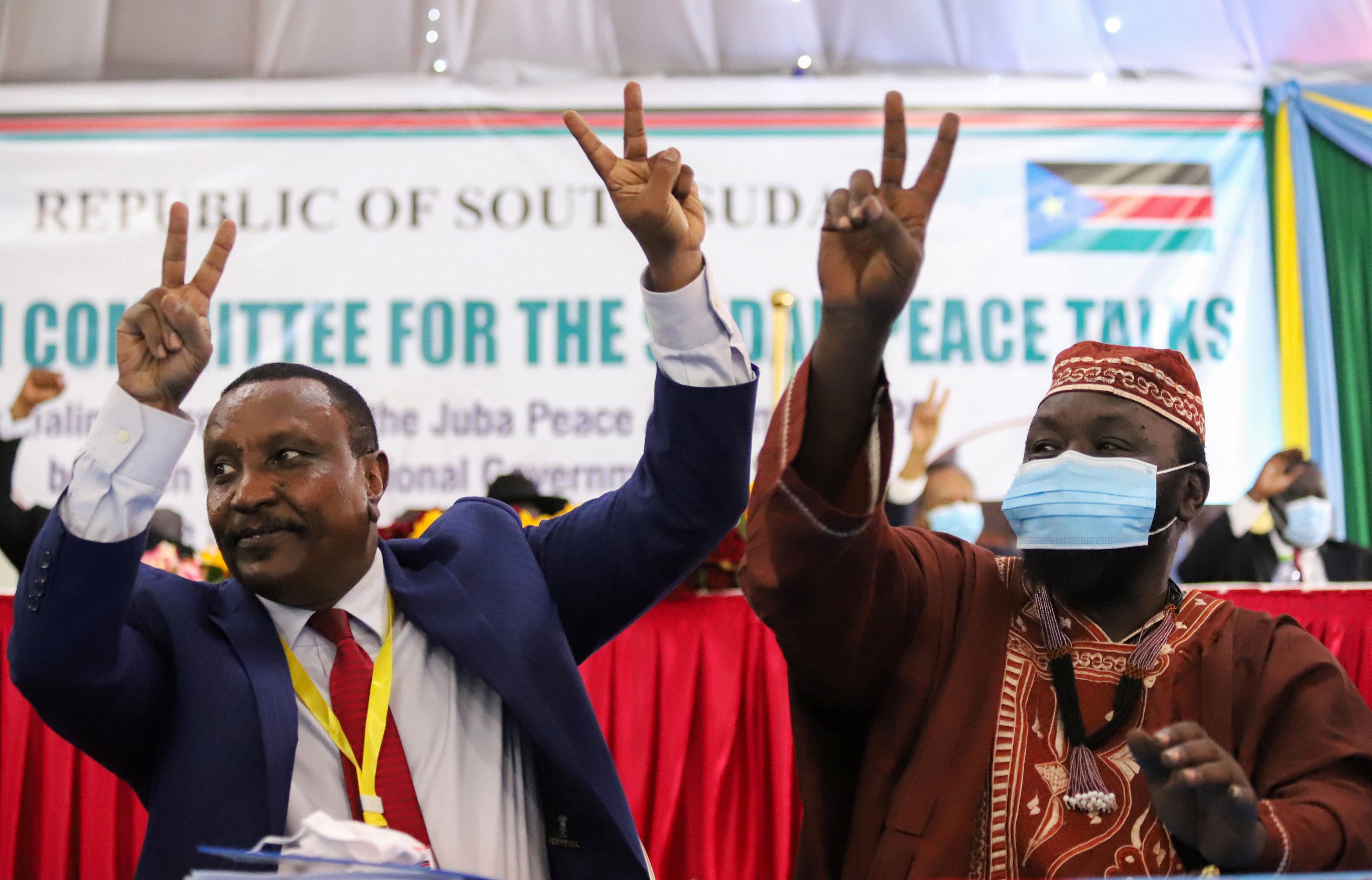September 01, 2020
Sudan, rebels shake hands: Sudan's transitional government and an alliance of rebel groups signed a peace agreement on Monday that aims to stabilize the Darfur, South Kordofan and Blue Nile regions after almost two decades of conflict. The deal covers several key issues, including the integration of rebel fighters into the national army and the return of refugees who fled the conflict since 2003. Indeed, it's the first major step towards peace in conflict-ridden Sudan since the ouster of former strongman president Omar al-Bashir in April 2019. The joint military-civilian cabinet in Khartoum now plans to hand over Bashir to the International Criminal Court in The Hague, where he will face charges of genocide and crimes against humanity over his role in the Darfur war during which 300,000 were killed and more than 2 million were displaced. However, at least two rebel factions refused to join the latest peace agreement, highlighting the fragility of the nascent deal.
India-China border flares up: A standoff between Indian and Chinese troops in the disputed Himalayan border area this week prompted both sides to amass thousands of additional troops as well as advanced weaponry to survey the contested Line of Actual Control. This latest confrontation — which reportedly amounted to little more than a screaming match — comes after Indo-China tensions peaked in June, when skirmishes in Ladakh, a disputed region in Indian-administered Kashmir, resulted in dozens of deaths on both sides (iron bars and fists were the weapons of choice). These clashes represented the deadliest flare up in decades between the two regional powers, who have long been at loggerheads in the remote borderlands as well as elsewhere in South Asia. Indeed, this latest escalation suggests that diplomatic efforts to cool tensions might not be working, and that under the nationalistic leadership of China's Xi Jinping and India's Narendra Modi, the border area will likely remain a tinderbox for years to come.
EU wades into Greece-Turkey sea row: The European Union is mulling sanctions against Turkey over Ankara's plans to drill for oil and gas in parts of the Eastern Mediterranean claimed by Greece, an EU member state. Although details remain murky, Josep Borrell, the EU's foreign policy chief, said that if dialogue fails, the sanctions may target Turkey's ability to use EU ports and equipment. While Turkey's foreign minister responded by insisting that Ankara favors a negotiated solution, including sharing hydrocarbon resources from the disputed area, President Recep Tayyip Erdoğan — a hardline nationalist who has threatened Greece with military action — has yet to weigh in publicly. Greeks and Turks have been bickering about this issue for months, and last week both sides held separate naval drills in the contested region off Cyprus despite a German-led diplomatic effort to persuade them to back down.
More For You
A photograph posted by U.S. President Donald Trump on his Truth Social account shows him sitting next to CIA Director John Ratcliffe as they watch the U.S. military operation in Venezuela from Trump's Mar a Lago resort, in Palm Beach, Florida, U.S., January 3, 2026.
@realDonaldTrump/Handout via REUTERS
Most Popular
- YouTube
In this "ask ian," Ian Bremmer analyzes Trump’s recent meeting with Zelensky and how close (or far) Russia and Ukraine are from a peace deal.
Syrian President Ahmed al-Sharaa attends the military parade of the Syrian army in Umayyad Square in central Damascus to mark the one-year anniversary of the fall of the Assad regime, on Dec. 8, 2025.
Mohammed Al-Rifai/dpa via Reuters Connect
A year ago this month, Syria’s brutal dictatorship collapsed. There are signs of recovery, but sectarian violence threatens to undermine the optimism.
© 2025 GZERO Media. All Rights Reserved | A Eurasia Group media company.
